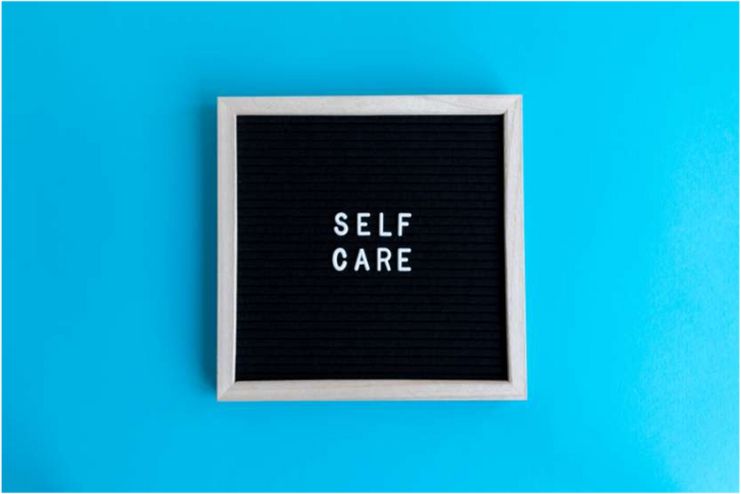Affiliate Disclaimer
Some links in this article are affiliate links. We may earn a small commission if you make a purchase through these links, at no extra cost to you. We only recommend products we find useful to our readersMen died by suicide 3.85 times more often than women worldwide. Despite these concerning figures, a large number of men keep quiet about their difficulties, suppressing their feelings and ignoring their mental health as a result of social pressure.
Traditional gender standards have portrayed men as emotionally invulnerable, harsh, and stern for many years. Men find it challenging to ask for assistance when they need it most because of phrases like “man up” and “boys don’t cry,” which perpetuate a culture that views vulnerability as weakness. Devastating outcomes, such as untreated mental health issues, broken relationships, and even fatalities, can result from this stigma.
This article aims to eliminate this stigma and inspire males to embrace mental health awareness. By bringing attention to the problem, we hope to enable men to put their emotional health first and get the help they need without feeling ashamed or afraid.
Read More: Mastering Mindfulness: A Practical Guide for Busy Men
The Current Landscape of Men’s Mental Health

Despite being a vital component of our general well-being, mental health is still a subject that is frequently misunderstood, dismissed, and disregarded, particularly for males. Society has long expected men to suppress their emotions, endure hardships, and persevere through challenges.
According to an American Psychological Association survey, 58% of women and only 35% of males said they would seek professional mental health assistance. Men are more likely than women to be diagnosed with antisocial personality disorder and alcohol dependence, for instance.
Parents and society teach boys to “be tough” early on. People view seeking assistance as a failure of masculinity and mistakenly label vulnerability as a weakness. Many men are pushed by this poisonous narrative to hide their emotions, holding them inside until they explode.
Stress and burnout at work are more common among men. Men are less likely to take time off to take care of their mental health and are more likely to report feeling overburdened at work, according to a poll conducted by the American Institute of Stress.
The current state of men’s mental health is about breaking the stigma that has been established in society for decades, not merely about untreated disorders. It is now time to break them.
Understanding the Stigma Around Men’s Mental Health

Men feel more alone and lonely the more we try to avoid discussing their mental health. Feeling dismissed and less significant than others will exacerbate the already severe symptoms of anxiety and despair.
Asking for assistance can be a complex undertaking for many people. Admitting that you need help is frequently criticized, which makes men feel humiliated or embarrassed.
But it’s crucial to remember that asking for assistance is a show of strength rather than your weakness. Resources are available to help whether you need someone to talk to or are dealing with substance misuse or mental health difficulties.
The National Institute of Mental Health estimates that one in five Americans has a mental illness each year.
Unfortunately, stigma, discrimination, and prejudice against those with mental illness remain common. Ignorance or fear frequently causes stigma. We encounter social, cultural, and professional stigmas—and even within ourselves.
Society has historically viewed men as strong, wealthy, and breadwinners, so it perceives disadvantages like mental illness as signs of weakness or a lack of masculinity. In the end, these stigmas and toxic masculinity, in general, foster an environment where people are afraid to discuss their health or accept their diagnoses.
Read More: Finding Balance: Yoga and Meditation for Seniors’ Physical and Mental Health
Strategies to Normalize Men’s Mental Health

Many men in our society stigmatize mental health issues. Men are less likely to seek treatment, which raises their risk for severe and chronic health conditions, even though it is a very significant public health issue that can affect people of all ages, genders, and backgrounds.
Research has shown that new fathers are prone to postpartum depression, according to the Canadian Mental Health Association.
Hospitals in Canada are admitting a growing number of young and middle-aged males due to schizophrenia. Contrary to popular belief, there is substantially less gender discrepancy among those who have mental illness.
Here are some techniques to help men open up and get the assistance they deserve:
How to Ask for Assistance:
Therapy: Seeing a qualified therapist offers a secure setting for discussing feelings and creating coping mechanisms. Sites such as Men’s Therapy Online provide services specifically designed for males.
Support Groups: Participating in groups enables one to exchange experiences with people going through comparable difficulties. For example, ManKind Project USA and Men’s Group provide online support specifically for males.
Online Resources: Websites such as Man Therapy encourage men to reflect on and discuss their mental health using accessible content and comedy.
Options for Male-Friendly Therapy:
Anonymous Sessions: Men can secretly seek help through services like DoMental, which offers therapy without demanding personal identity.
Virtual Therapy: Virtual counseling is available from the comfort of your home through online platforms such as 7 Cups.
Adopting these techniques can help overcome mental health hurdles. Remember that asking for assistance is a show of great strength and that making the first move can result in significant personal development and well-being.
Read More: Over 40 and Ripped: 10 Power-packed Strategies for Building Muscle in Men
Encouraging Self-Care Practices for Men

Self-care is essential in today’s hectic environment, particularly for men who frequently balance various tasks and obligations. Adopting self-care practices can significantly improve general well-being and mental health.
Anything you do to enhance your physical and emotional well-being is considered self-care. It might include storing the proper foods in the refrigerator, taking a long, hot shower, talking to a therapist, and clearing your confused mind.
Healthy habits and mental health require eliminating the stigma associated with men and self-care. Here are some practical, doable suggestions just for males:
Keep in Touch: Establish solid bonds with your loved ones.
Move Your Body: Research has shown that exercise helps those with anxiety and sadness. On most days of the week, try to get in at least 30 minutes of moderate activity.
Seek Expert Assistance: “Asking for any help is a show of strength. It shows self-awareness and a dedication to one’s development.
Practice Mindfulness: Yoga, meditation, and deep breathing can enhance stress management and emotional control.
Keep Up a Healthy Lifestyle: Do you sleep for seven to eight hours every night? If not, determine the issue or factors keeping you from getting enough sleep. A balanced diet, avoiding any excessive alcohol and drug use, and minimizing screen time are all excellent places to start.
Begin Keeping a Journal: Research shows that journaling benefits mental health. By putting things in writing, you can track your personal development and gain clarity. Journaling can also effectively identify men’s stress triggers.
Establish Personal Objectives and Monitor Your Progress: Establishing objectives helps you stay motivated, feel purposeful, and maintain your self-care routine. Whether striving to attain a health goal or a significant career milestone, it can help you focus on finishing chores.
Take up a New Pastime: One of the best ways to push yourself and get out of your routine is to try something novel and fascinating. Try cooking, picking up a new pastime, or learning to play an instrument.
Read More: Man vs. Silence: Understanding the Reasons Behind His Quiet Moments
When and How to Seek Professional Help

Acknowledging the need for expert assistance is a step toward healing and strength, not weakness. Even while everyone has difficulties, there are some apparent signals that it’s time to get help from a mental health specialist.
Red flags could include difficulty sleeping, withdrawal from loved ones, a lack of interest in once-enjoyed hobbies, or persistent feelings of despair, anger, or hopelessness. It’s also important to treat physical symptoms like headaches, exhaustion, or unexplained aches associated with stress. Above all, get help right away if suicidal or self-harming thoughts occur.
The key is to find the correct specialist. Seek out someone with expertise in your problems. To determine comfort and compatibility, look over credentials, read reviews, and don’t be afraid to request an initial consultation. Recall that asking for assistance is a brave act of self-care. A skilled therapist helps you achieve clarity, resilience, and a better mental state and offers solutions.
Conclusion
Even though mental health is just as important as physical health, it is more frequently disregarded, particularly among men. This pattern needs to end. Recognizing mental health issues shows bravery, and a healthy mind leads to a strong life.
Today, take one tiny yet significant step. Talk to a trusted friend about how you’re feeling, see how a male friend is doing, or have the courage to get help from a professional. With each modest step, we get closer to normalizing discussions about mental health and fostering an understanding and compassionate society.
References
- https://www.bbc.com/future/article/20190313-why-more-men-kill-themselves-than-women
- https://afsp.org/suicide-statistics
- https://pmc.ncbi.nlm.nih.gov/articles/PMC7444121
- https://www.aamc.org/news/men-and-mental-health-what-are-we-missing
- https://campuspress.yale.edu/ledger/breaking-the-stigma-mens-mental-health-matters
- https://www.nih.org/nihd-news/2023/june/breaking-the-stigma-addressing-mens-mental-healt
- https://www.stress.org/news/mind-over-masculinity-breaking-the-stigma-of-mens-mental-health
- https://www.1800runaway.org/mental-health-stigma-in-men
- https://www.nimh.nih.gov/health/statistics/mental-illness#part_154910
- https://www.harvardpilgrim.org/hapiguide/breaking-stigma-increasing-support-for-mens-mental-health
- https://helloalleva.com/breaking-the-stigma-the-importance-of-mens-mental-health-awareness
- https://mindfulhealthsolutions.com/identifying-depression-in-men-and-fighting-the-stigma
- https://cmhato.org/understanding-mental-health/mens-mental-health
- https://pmc.ncbi.nlm.nih.gov/articles/PMC6305886
In this Article




















